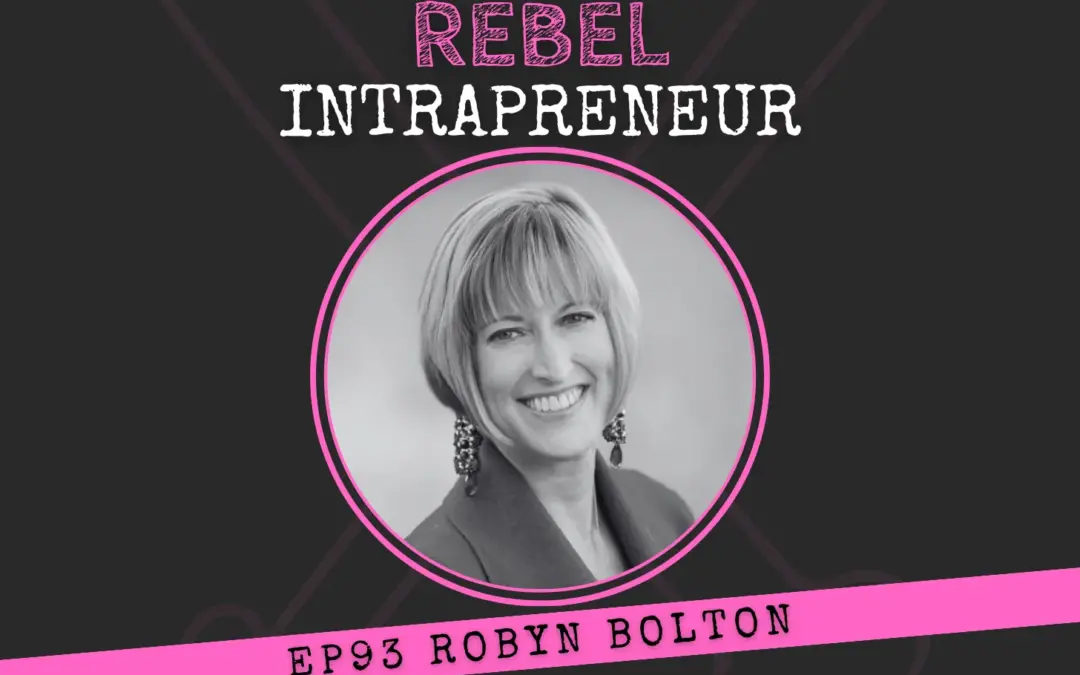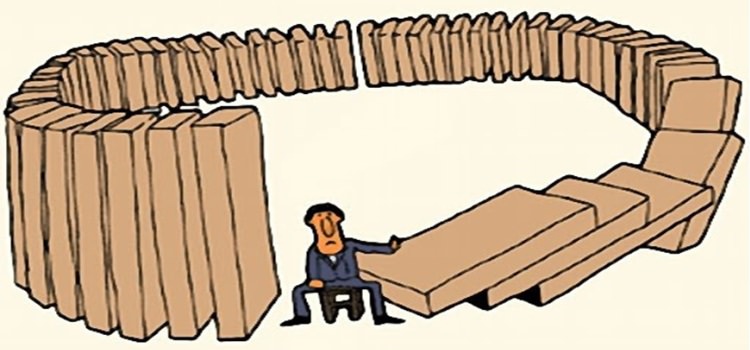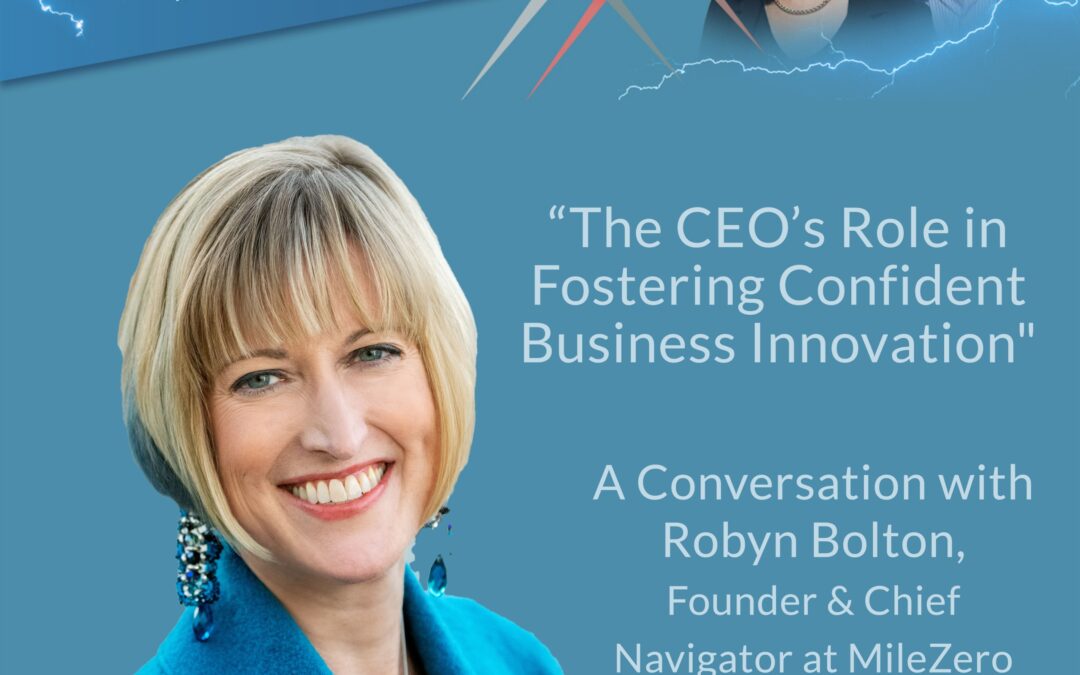
by Robyn Bolton | Mar 11, 2024 | Innovation, Leadership
In 2014, rumors started to circulate that Apple was developing a self-driving autonomous car to compete with Tesla. At the end of February 2024, rumors circulated that Apple was shutting down “Project Titan,” its car program. According to multiple media outlets, the only logical conclusion from the project’s death is that this decision signals the beginning of the end of Apple.
As much as I enjoy hyperbole and unnecessary drama, the truth is far more mundane.
The decision was just another day in the life of an innovation.
As always, there is a silver lining to this car-shaped cloud: the lessons we can learn from Apple’s efforts.
Lesson 1: Innovation isn’t all rainbows and unicorns
People think innovation is fun. It is. It is also gut-wrenching, frustrating, and infuriating. Doing something new requires taking risks, which is uncomfortable for most people. Even more challenging is that, more often than not, when you take a risk, you “fail.” (if you learned something, you didn’t fail, but that’s another article).
What you can do: Focus on the good stuff – moments of discovery, adventures when experimenting, signs that you’re making life better for others – but don’t forget that you’re defying the odds.
Lesson 2: More does not mean success
It’s been reported that Apple spent over ten billion dollars on Project Titan and that over 2000 people were working on it before it was canceled. With a market cap of over two trillion dollars, a billion dollars a year isn’t even a rounding error. But it’s still an eye-popping number, which makes Apple’s decision to cut its losses downright courageous.
What you can do: Be on guard for the sunk-cost fallacy. It’s easy to believe that you’ll eventually succeed if you keep working and pouring resources into a project. That’s not true, as Apple experienced. And in the rare cases when it is, executives are often left wondering if the success was worth the cost.
Lesson 3: Pivot based on data, not opinions
At least four different executives led Project Titan during its decade in development, and each leader brought their own vision for what the Apple Car should be. First, it was an electric vehicle with driver assistance that would compete with Tesla. Next, it was a self-driving car to compete with Google’s WayMo. Then, plans for fully autonomous driving were canceled. Finally, the team returned to its original target of matching Tesla’s Level 2 automation.
Changes in project objectives, strategies, and execution plans are necessary for innovation, so there’s nothing obviously wrong with these pivots. But the fact that they tended to happen when a new leader was appointed (and that Jony Ive caused an 18-month hiring freeze simply by expressing “displeasure”) makes me question how data-based these pivots actually were
What you can do: Be willing to change but have a high standard for what is required to cause a change. Data, even qualitative and anecdotal data, should be seriously considered. The opinion of a single executive, not so much.
Lesson 4: Dream big, build small
Apple certainly dreamed big with its aspirations to build a fully semi-autonomous vehicle and it poured billions into developing and testing the sensors, batteries, and partnership required to make it a reality. But it was never all-or-nothing in its pursuit of the automotive industry. Apple introduced CarPlay the same year it kicked off Project Titan, and it continues to offer regular updates to the system. Car Key was announced in 2020 and is now offered by BMW, Genesis, Hyundai, and Kia.
What you can do: Take a portfolio approach towards your overall innovation portfolio (Apple kept working on the iPhone, iPad, Apple Watch, and Vision Pro) and within each project. It’s not unusual that a part of the project turns out to be more valuable than the whole project.
Lesson 5: ___________________________
Yes, that is a fill-in-the-blank because I want to hear from you. What lesson are you taking away from Project Titan’s demise, and how will it make you a better innovator?

by Robyn Bolton | Mar 5, 2024 | Customer Centricity, Tips, Tricks, & Tools
AI is NOT a substitute for person-to-person discovery conversations or Jobs to be Done interviews.
But it is a freakin’ fantastic place to start…if you do the work before you start.
Get smart about what’s possible
When ChatGPT debuted, I had a lot of fun playing with it, but never once worried that it would replace qualitative research. Deep insights, social and emotional Jobs to be Done, and game-changing surprises only ever emerge through personal conversation. No matter how good the Large Language Model (LLM) is, it can’t tell you how feelings, aspirations, and motivations drive their decisions.
Then I watched JTBD Untangled’s video with Evan Shore, WalMart’s Senior Director of Product for Health & Wellness, sharing the tests, prompts, and results his team used to compare insights from AI and traditional research approaches.
In a few hours, he generated 80% of the insights that took nine months to gather using traditional methods.
Get clear about what you want and need.
Before getting sucked into the latest shiny AI tools, get clear about what you expect the tool to do for you. For example:
- Provide a starting point for research: I used the free version of ChatGPT to build JTBD Canvas 2.0 for four distinct consumer personas. The results weren’t great, but they provided a helpful starting point. I also like Perplexity because even the free version links to sources.
- Conduct qualitative research for me: I haven’t used it yet, but a trusted colleague recommended Outset.ai, a service that promises to get to the Why behind the What because of its ability to “conduct and synthesize video, audio, and text conversations.”
- Synthesize my research and identify insights: An AI platform built explicitly for Jobs to be Done Research? Yes, please! That’s precisely what JobLens claims to be, and while I haven’t used it in a live research project, I’ve been impressed by the results of my experiments. For non-JTBD research, Otter.ai is the original and still my favorite tool for recording, live transcription, and AI-generated summaries and key takeaways.
- Visualize insights: Mural, Miro, and FigJam are the most widely known and used collaborative whiteboards, all offering hundreds of pre-formatted templates for personas, journey maps, and other consumer research templates. Another colleague recently sang the praises of theydo, an AI tool designed specifically for customer journey mapping.
Practice your prompts
“Garbage in. Garbage out.” Has never been truer than with AI. Your prompts determine the accuracy and richness of the insights you’ll get, so don’t wait until you’ve started researching to hone them. If you want to start from scratch, you can learn how to write super-effective prompts here and here. If you’d rather build on someone else’s work, Brian at JobsLens has great prompt resources.
Spend time testing and refining your prompts by using a previous project as a starting point. Because you know what the output should be (or at least the output you got), you can keep refining until you get a prompt that returns what you expect. It can take hours, days, or even weeks to craft effective prompts, but once you have them, you can re-use them for future projects.
Defend your budget
Using AI for customer research will save you time and money, but it is not free. It’s also not just the cost of the subscription or license for your chosen tool(s).
Remember the 80% of insights that AI surfaced in the JTBD Untangled video? The other 20% of insights came solely from in-person conversations but comprised almost 100% of the insights that inspired innovative products and services.
AI can only tell you what everyone already knows. You need to discover what no one knows, but everyone feels. That still takes time, money, and the ability to connect with humans.
Run small experiments before making big promises
People react to change differently. Some will love the idea of using AI for customer research, while others will resist with. Everyone, however, will pounce on any evidence that they’re right. So be prepared. Take advantage of free trials to play with tools. Test tools on friends, family, and colleagues. Then underpromise and overdeliver.
AI is a starting point. It is not the ending point.
I’m curious, have you tried using AI for customer research? What tools have you tried? Which ones do you recommend?

by Robyn Bolton | Mar 3, 2024 | Podcasts

by Robyn Bolton | Feb 27, 2024 | Customer Centricity, Tips, Tricks, & Tools
Unintended consequences often catch us off guard despite their predictability. The moment they occur, we gasp in shock, shake our heads, and look at each other in wide-eyed horror at this thing that just happened that we could never ever ever have anticipated.
Yet, when (if) we do an After-Action Review, we often realize that these consequences were not entirely unforeseeable. In fact, had we anticipated them, we might have made different decisions.
The Unintended Consequences of Spreadsheets
In 1800 BCE, ancient Babylonians started recording data by scratching grids and columns onto clay tablets, and the spreadsheet was born. Over the millennia, we went from clay tablets to papyrus to parchment and then paper.
Fast forward to 1963 when R. Brian Walsh of Marquette University ported the Business Computer Language (BCL) program to an IBM 7040, and electronic spreadsheets became a reality. The introduction of VisiCalc by Apple in 1979 revolutionized spreadsheet capabilities, followed by Lotus 123 and Microsoft Excel. Today, spreadsheets are ubiquitous in education, business operations, financial markets, budgeting, and even personal inventories.
Unintended yet predictable consequences
While spreadsheets have undoubtedly enhanced efficiency and accuracy compared to traditional methods like clay tablets or hand-drawn tables on parchment, their ease of use has inadvertently led to complacency.
We stopped engaging in a multi-millennial habit of discussing, debating, and deciding before making a spreadsheet. We started flippantly asking people to create spreadsheets and providing little, if any, guidance because “it’s easy to make changes and run scenarios.”
This shift resulted in a reliance on automated models and a lack of shared assumptions or analytical rigor in decision-making processes.
Of course, these behaviors were never intended. They were, however, very predictable.
Research spanning disciplines as varied as network scientists, anthropology, neuropsychology, and paleontology shines a light on how truly predictable we are.
Here are some examples:
Emotions before Reason: Ask someone if they make decisions based on their motivations, aspirations, and fears and use data to justify the decisions, and they’ll tell you no. Ask them the last time someone else made a decision that “made no sense,” and you’ll listen to a long list of examples.
Small gains now are better than big gains later: Thoughtfully planning before using solutions like spreadsheets, word processing, email, and instant messaging could save us time at work and help us get home 30 minutes earlier or work a few hours less on the weekend. But saving a few seconds now by brain-dumping into Word, setting up a “flexible” spreadsheet, and firing off a text feels much better.
Confidence > Realism: We’ve all been in meetings where the loudest voice or the most senior person’s opinion carried the day. As we follow their lead, we ignore signs that we’re wrong and explain away unexpected and foreboding outcomes until we either wake up to our mistakes or adjust to our new circumstances.
Predict the 93%. Create for the 7%
Acknowledging the predictability of human behavior is not an endorsement of stereotypes but a recognition of our innate cognitive processes. By incorporating this understanding into design, innovation, and decision-making processes, we better anticipate potential outcomes and mitigate unintended consequences.
While 93% of human behavior may follow predictable patterns rooted in evolutionary instincts, focusing on the remaining 7% allows for the exploration of unique behaviors and novel solutions. By embracing both aspects of human nature, we can navigate challenges more effectively and anticipate a broader range of outcomes in our endeavors, leading to informed decision-making and value creation.
Now, if I could only get Excel to stop auto-converting numbers into date/time format.

by Robyn Bolton | Feb 22, 2024 | Podcasts




